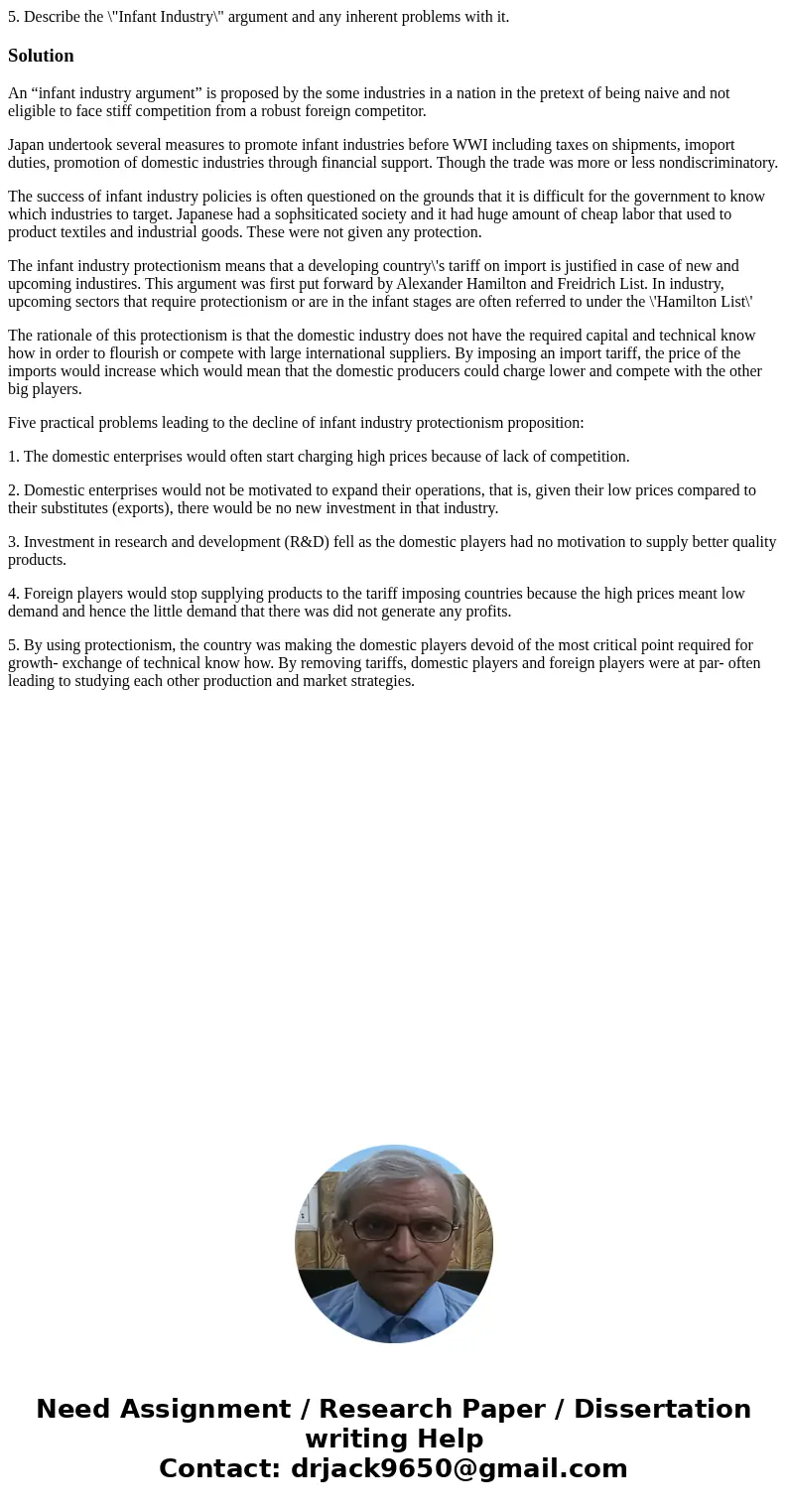5 Describe the Infant Industry argument and any inherent pro
Solution
An “infant industry argument” is proposed by the some industries in a nation in the pretext of being naive and not eligible to face stiff competition from a robust foreign competitor.
Japan undertook several measures to promote infant industries before WWI including taxes on shipments, imoport duties, promotion of domestic industries through financial support. Though the trade was more or less nondiscriminatory.
The success of infant industry policies is often questioned on the grounds that it is difficult for the government to know which industries to target. Japanese had a sophsiticated society and it had huge amount of cheap labor that used to product textiles and industrial goods. These were not given any protection.
The infant industry protectionism means that a developing country\'s tariff on import is justified in case of new and upcoming industires. This argument was first put forward by Alexander Hamilton and Freidrich List. In industry, upcoming sectors that require protectionism or are in the infant stages are often referred to under the \'Hamilton List\'
The rationale of this protectionism is that the domestic industry does not have the required capital and technical know how in order to flourish or compete with large international suppliers. By imposing an import tariff, the price of the imports would increase which would mean that the domestic producers could charge lower and compete with the other big players.
Five practical problems leading to the decline of infant industry protectionism proposition:
1. The domestic enterprises would often start charging high prices because of lack of competition.
2. Domestic enterprises would not be motivated to expand their operations, that is, given their low prices compared to their substitutes (exports), there would be no new investment in that industry.
3. Investment in research and development (R&D) fell as the domestic players had no motivation to supply better quality products.
4. Foreign players would stop supplying products to the tariff imposing countries because the high prices meant low demand and hence the little demand that there was did not generate any profits.
5. By using protectionism, the country was making the domestic players devoid of the most critical point required for growth- exchange of technical know how. By removing tariffs, domestic players and foreign players were at par- often leading to studying each other production and market strategies.

 Homework Sourse
Homework Sourse